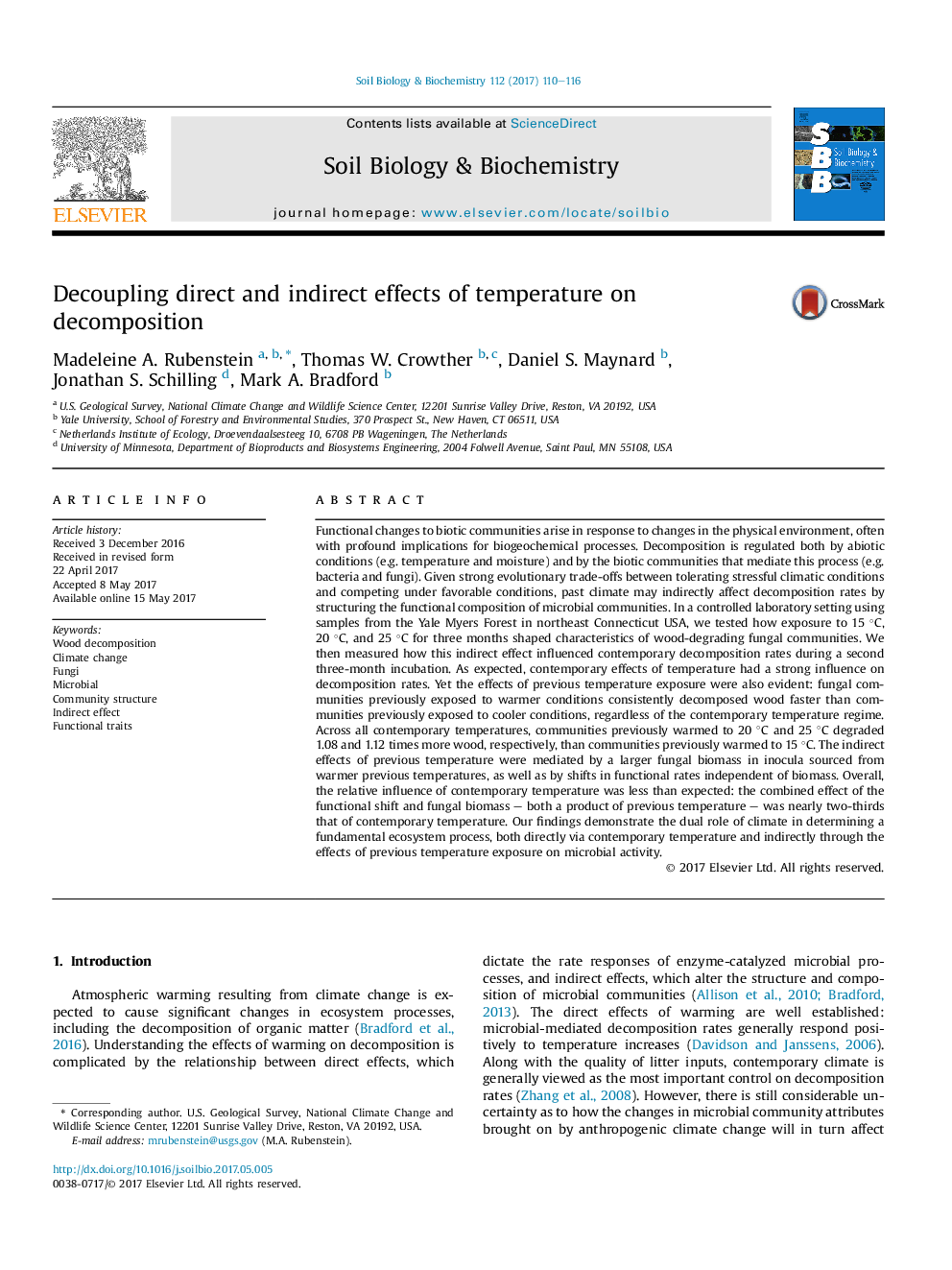| کد مقاله | کد نشریه | سال انتشار | مقاله انگلیسی | نسخه تمام متن |
|---|---|---|---|---|
| 5516342 | 1542572 | 2017 | 7 صفحه PDF | دانلود رایگان |
• Both contemporary and historical temperature determine decomposition rates.
• Previously warmed fungi decomposed wood faster than cooled fungi.
• Contemporary temperature is insufficient to fully explain decomposition dynamics.
Functional changes to biotic communities arise in response to changes in the physical environment, often with profound implications for biogeochemical processes. Decomposition is regulated both by abiotic conditions (e.g. temperature and moisture) and by the biotic communities that mediate this process (e.g. bacteria and fungi). Given strong evolutionary trade-offs between tolerating stressful climatic conditions and competing under favorable conditions, past climate may indirectly affect decomposition rates by structuring the functional composition of microbial communities. In a controlled laboratory setting using samples from the Yale Myers Forest in northeast Connecticut USA, we tested how exposure to 15 °C, 20 °C, and 25 °C for three months shaped characteristics of wood-degrading fungal communities. We then measured how this indirect effect influenced contemporary decomposition rates during a second three-month incubation. As expected, contemporary effects of temperature had a strong influence on decomposition rates. Yet the effects of previous temperature exposure were also evident: fungal communities previously exposed to warmer conditions consistently decomposed wood faster than communities previously exposed to cooler conditions, regardless of the contemporary temperature regime. Across all contemporary temperatures, communities previously warmed to 20 °C and 25 °C degraded 1.08 and 1.12 times more wood, respectively, than communities previously warmed to 15 °C. The indirect effects of previous temperature were mediated by a larger fungal biomass in inocula sourced from warmer previous temperatures, as well as by shifts in functional rates independent of biomass. Overall, the relative influence of contemporary temperature was less than expected: the combined effect of the functional shift and fungal biomass – both a product of previous temperature – was nearly two-thirds that of contemporary temperature. Our findings demonstrate the dual role of climate in determining a fundamental ecosystem process, both directly via contemporary temperature and indirectly through the effects of previous temperature exposure on microbial activity.
Journal: Soil Biology and Biochemistry - Volume 112, September 2017, Pages 110–116
